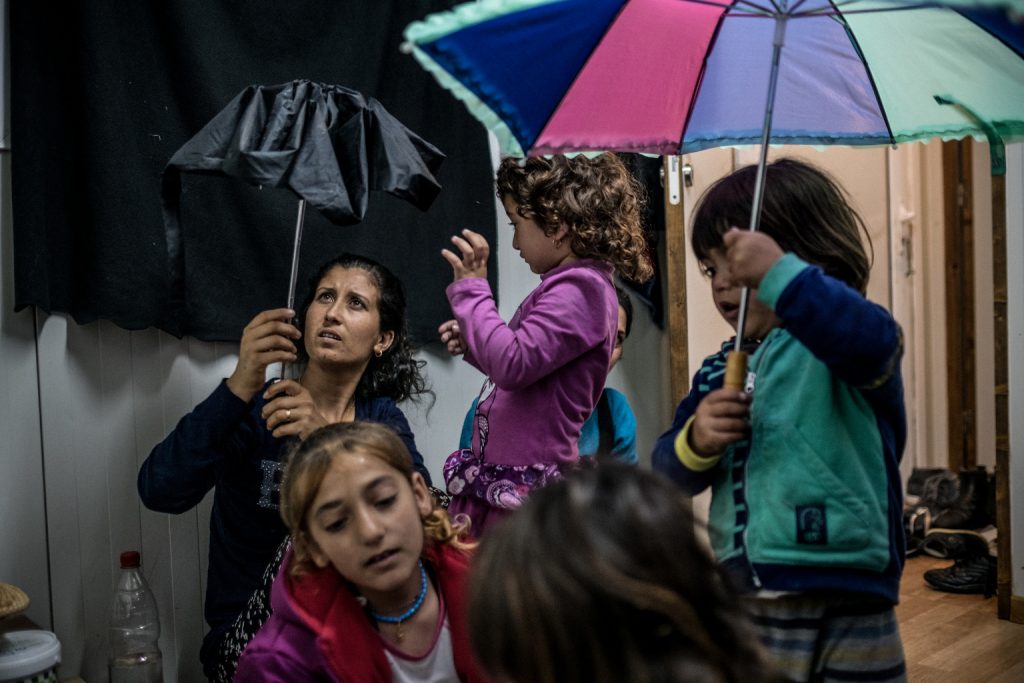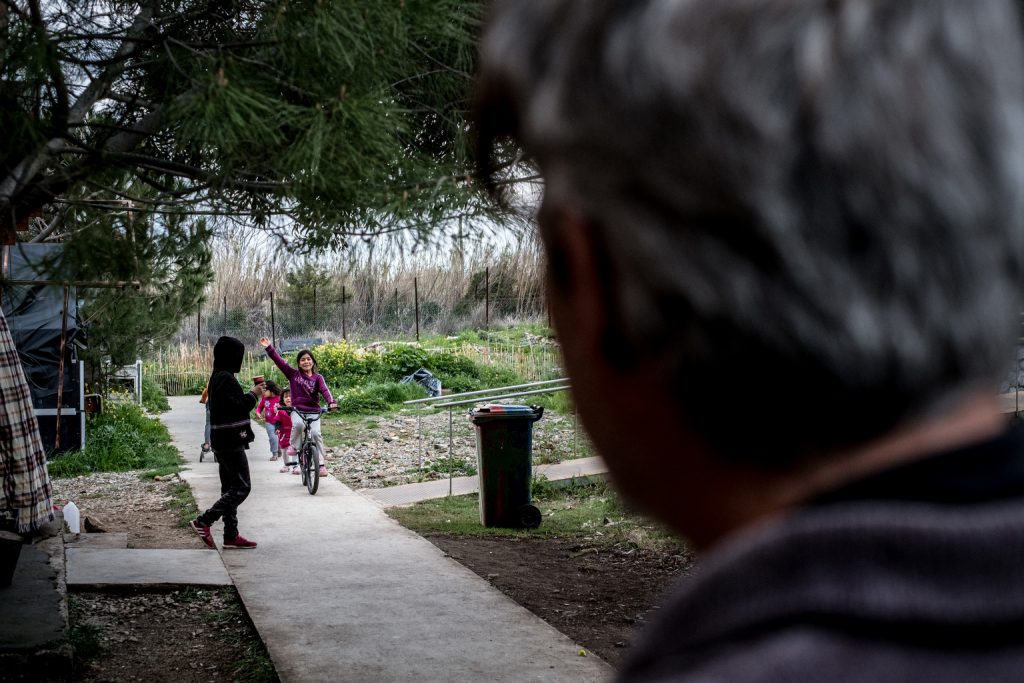Lost future. Thousands of children refugees at risk of psychological distress by living in limbo
Tens of thousands of children refugees living in European centers are at risk of psychological distress. With their families torn apart, single mothers and their children live in a perpetual state of limbo without knowing if live will ever become normal again.
There are an estimated 24,600 children, currently stranded in Greece, Bulgaria, Hungary and the Western Balkans at risk of psychological distress by living in a a protracted state of limbo, Unicef warns. Most of them do not know if or when they will be able to be reunited with their families and for single mothers, the situation is getting critical. And the conditions in the refugee camps do little to help out with mental health issues and fight against depression or anxiety as one mother, living in Sinatex Kavalri refugee camp near Thessaloniki in Greece told Unicef.
Roshan Haide, 36, has been living in the Thessaloniki camp for two years and the uncertainty about her and her children’s future has taken its toll.
“People need to get out of here, this factory”, Roshan said. “We feel like animals, just eating and sleeping. Life is not that. Life is going to school, going to see people, having a home. We want to get to work, give our kids an education.”
Monine Al Sabsabi, a refugee from Aleppo that ended up in an other center in Greece is in the same state of mind like Roshan and looking at her children, the realization of what it means to live in limbo becomes even more painfully acute.
“Life is very difficult in the camp. The children do not know how to live in here. There is no stability. They made schools but there is no future for these children. My children lose their future and I suffer for them. Their life stopped,” she told Unicef.
Families have the right to ask for reunification, a process that typically takes between 10 months and two years. In many cases, adult males are the first family members to make the trip to Europe, with the rest of the family following later. But with the 2016 border closures and implementation of the EU-Turkey statement, other family members are being held up in transit countries, exposing mothers and children to further psychological distress.

This is the case for Asia Khalaf, and her three-year old daughter Aziza. Originally form Sinjar, Iraq, Aziza now lives together with another Yazidi family, a mother and her daughters, after her husband made the trip to Germany trying to find a safe passage. It’s been two years since then and Aziza does not know if reunification will be possible.
“I’m upset and I want to die,” said Asia, currently living at the Skaramagas refugee camp in Greece.
In 2016, nearly 5,000 family reunification requests, out of which 700 from unaccompanied and separated children, were made from Greece, with only 1,107 successful applicants having reached their destination country by the end of the year. Meanwhile, the number of refugees and migrants stranded in Greece, Hungary and the Western Balkans continues to grow, increasing by around 60% over the past year from 47,000 in March 2016 to nearly 80,000 at the end of April.
“Keeping families together is the best way to ensure that children are protected, which is why the family reunification process for refugee and migrant children is so important,” said Khan. “With the number of those stranded continuing to rise, it is incumbent on member states to alleviate procedural bottlenecks so that families can get back together as quickly as possible.”
But keeping families together is only a first step towards offering children a better protection.The state of uncertainty in refugee centres around Europe, paving the way for anxieties about the future, could set back the children’s development.

Mohammad Dawood Hairdari, 43, a refugee from Kandahar is reminded of this everyday. He arrived in Europe only to find the borders have been closed and together with his wife and children ended up in an open refugee camp run by volunteers outside of Mytiline, in Lesvos. At best, conditions at Mytiline are lacking and during the last winter, several people have died after exhaust from fires inside their tents asphyxiated them. Mohammad’s family has to endure all this after making the journey form Afghanistan.
“I would have preferred to be killed in Afghanistan. I came here for the future of my children and because we were not safe in Afghanistan.”
Unicef is asking for authorities to intervene and to help families stay together as a first step towards guaranteeing children’s safety and mental health. In countries like Bulgaria, Serbia, Croatia, Greece and Slovenia, Unicef is working alongside authorities and other non-profits in order to offer psychological support for children and mothers.
This recent Unicef warning comes after reports that children in refugee camps resort to self-mutilation and even alcoholism.